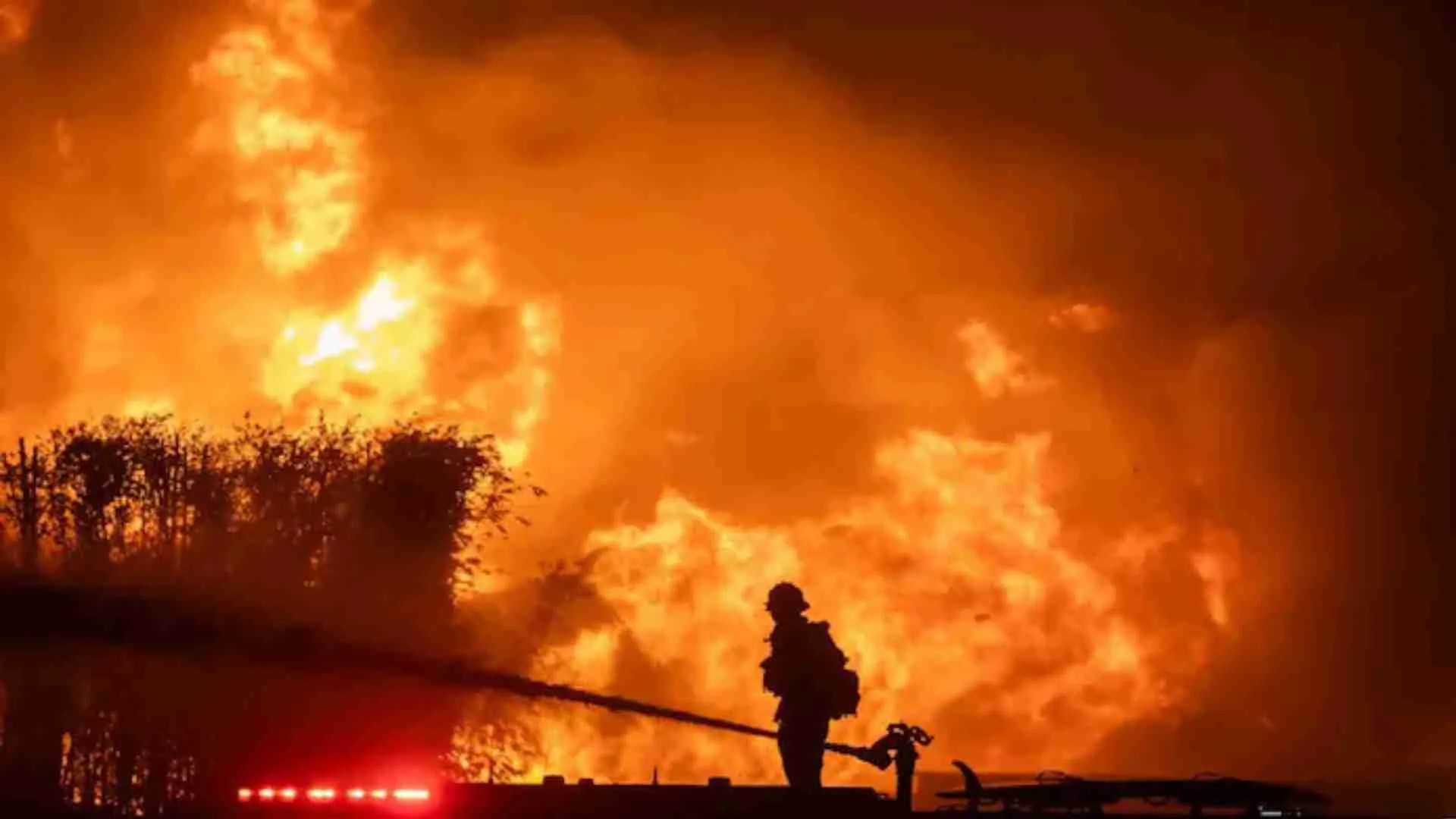The wildfires ravaging Los Angeles, particularly the Palisades and Eaton fires, are shaping up to be one of the most costly natural disasters in the history of the United States. With losses already exceeding $135 billion, experts predict that the total financial impact could soar to $150 billion, surpassing the costs of many previous wildfires.
The Scope of the Destruction
AccuWeather’s preliminary analysis estimates the wildfires’ toll at over $135 billion, with the potential to reach $150 billion. Chief Meteorologist Jonathan Porter emphasised the staggering scope of the destruction, noting that these fast-moving, wind-driven fires have created a disaster of historic proportions. The Palisades fire alone has destroyed more than 5,300 structures, while the Eaton fire has wiped out over 5,000 buildings.
Insurance Industry Faces a Massive Setback
The wildfire’s magnitude has placed a significant burden on the insurance industry, which is bracing for an unprecedented financial hit. Analysts from firms like Morningstar and JP Morgan estimate that insured losses could exceed $8 billion, amplifying existing challenges within the insurance sector. The rise in frequency and severity of natural disasters has already strained the industry, and this latest wildfire disaster will likely force insurers to reevaluate their pricing models and risk assessments.
Rising Insurance Costs and Limited Coverage
As the insurance industry faces mounting pressure, many residents in high-risk wildfire zones are turning to state-backed insurance options. In California, the number of policies under the state’s Fair Plan has surged dramatically, increasing from around 200,000 policies in 2020 to more than 450,000 in September of the previous year. Unfortunately, these government-backed plans tend to be more expensive and offer less comprehensive coverage, creating further challenges for affected homeowners.
Long-Term Impact on California’s Economy and Insurance Market
The long-term ramifications of the Los Angeles wildfires are likely to be far-reaching, with property values, public finances, and public health all affected. According to Denise Rappmund, senior analyst at Moody’s Ratings, the fires will have “widespread, negative impacts on the state’s broader insurance market.” Rising recovery costs are expected to increase insurance premiums while reducing the availability of property insurance in high-risk regions.
A Comparison to Previous Wildfire Disasters
The 2018 Camp Fire in northern California currently holds the record for the highest insured losses, estimated at approximately $12.5 billion. However, with the high property values in the affected Los Angeles areas, it is expected that the current wildfires will surpass that figure. According to Aon, a leading global insurance company, the Los Angeles wildfires are set to rank among the top five most expensive wildfire disasters in U.S. history.
Awaiting Official Damage Estimates
While private estimates are already in circulation, the U.S. and California governments have not yet announced their official damage assessments. As the full extent of the damage becomes clearer in the coming weeks, the economic and social impact of this unprecedented wildfire disaster will continue to unfold.
In the meantime, the residents of Los Angeles and surrounding areas continue to grapple with the immediate aftermath of the wildfires, as they face the loss of homes, businesses, and livelihoods. While recovery efforts are underway, the road to rebuilding is expected to be long and challenging, both for residents and for the broader economy.




















